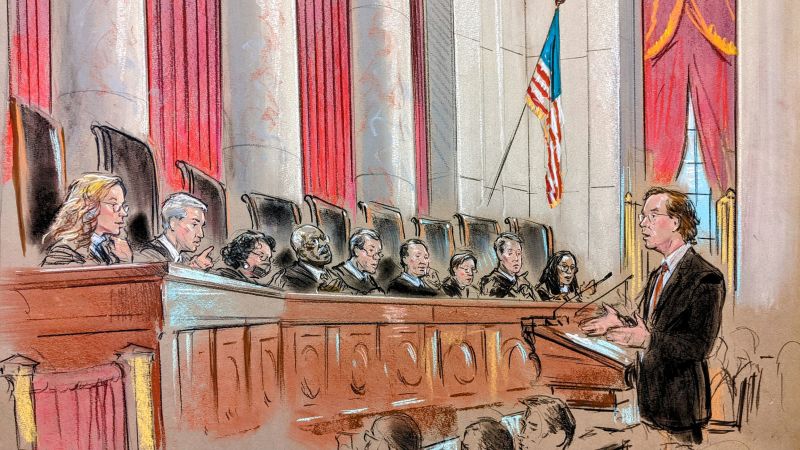State legislature theory and the fight for the future: a Michigan senate candidate’s story at a time when state legislatures are so powerful
A candidate for the state senate in suburban Detroit was going door to door in an effort to win a seat that her party believes is key to taking back the chamber. “I am tired of seeing cuts in aging communities like ours,” she told one voter, gesturing to a cul-de-sac pocked with cracks and crevasses. “We need to reinvest here.”
The struggle for the Michigan Senate, as well as clashes for control of several other narrowly divided chambers in battleground states, have taken on outsize importance at a time when state legislatures are ever more powerful. With Congress often deadlocked and conservatives dominating the Supreme Court, state governments increasingly steer the direction of voting laws, abortion access, gun policy, public health, education and other issues dominating the lives of Americans.
The justices are expected to decide whether to grant nearly unfettered authority over such elections to state legislatures — a legal argument known as the independent state legislature theory. If the court does so, many Democrats believe, state legislatures could have a pathway to overrule the popular vote in presidential elections by refusing to certify the results and instead sending their own slates of electors.
Fusing out the lies of Donald Trump and the ISLT: An analysis of Michigan’s 2022 election in the wake of the Moore v. Harper case
McMorrow was recently reelected to her second term in the Michigan Senate where she will serve as the chamber’s Majority Whip. You can follow her on the social networking site. The views are of her own. CNN has opinions on it.
When MyPillow CEO Mike Lindell lied and said he had evidence that computers in China changed votes in Oakland County, Michigan – the home of my Senate district – my office was overwhelmed with a deluge of calls and emails calling us traitors and liars. The torrent of hate flooding our phones and inboxes made it difficult for my small staff and me to respond to constituents on critical issues like accessing unemployment benefits, small business resources and navigating state departments. It may get worse now.
The attacks against our elections and our democracy are far from over, despite the talk that the election of 2022 was a nationwide refutation of election denialism. Now, the United States Supreme Court may inject even more opportunity for further election denialism, having heard arguments in the case of Moore v. Harper on Wednesday.
In Michigan, the top three nominees for governor earned their nomination because they promoted Donald Trump’s fake claims that the 2020 election was stolen. There were some 44 candidates who were running for the state legislature who were not sure of the validity of the election.
Democrats dominated both houses of the legislature for the first time in nearly 40 years in November, thanks to the top of the ticket they won and most of them were defeated. The result is thanks to the independent commission that took the process of drawing legislative maps out of the hands of the legislature.
As a state legislator, I, like my counterparts in North Carolina, swear an oath of office to uphold both the Constitution of the United States and the constitutions of our respective states. The checks and balances that are necessary for American democracy to survive are in jeopardy as a result of the idea promoted by ISLT that state legislators would be free to violate their own constitutions.
It will take a long time to figure out the conspiracy theories that have taken hold. Look no further than Michigan. Throwing out ISLT once and for all will be a good start.
